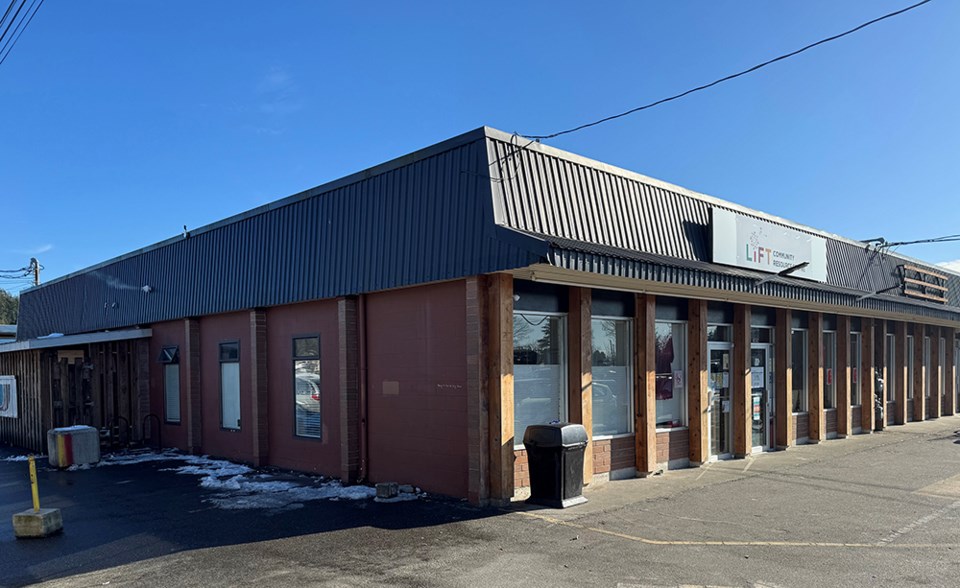qathet Community Action Team (qCAT) is working diligently, with broad community representation, to prevent death in the community from the unregulated drug supply.
According to the organization’s statement of purpose, qCAT's purpose is to strategically coordinate effective overdose responses, awareness and prevention initiatives for City of Powell River and communities throughout qathet Regional District (qRD).
A report from the BC Coroners Service shows the continued impact of unregulated drug toxicity in communities throughout the province in 2024, with 2,253 lives lost. The cumulative number of unregulated drug deaths represents a 13 per cent decrease from the number of deaths in 2023 and is less than the annual figure from any of the previous three years, according to a release from the BC Coroners Service.
The rate of death provincially in 2024 was 40 per 100,000 people, compared with 47 per 100,000 in 2023, 45 per 100,000 in 2022 and 44 per 100,000 in 2021.
qCAT coordinator Jessica Colasanto has indicated this trend is evident in qathet, where statistics several years back showed the region as having one of the highest per capita death rates outside of Vancouver’s Downtown Eastside, leading to the establishment of the community action team.
“Per capita, we were second – way up there,” said Colasanto “The urgency was felt and people stepped up. Through all of this, it helped launch our overdose prevention site, being the first in a rural area.”
Colasanto said there have been no overdose-related deaths at the overdose prevention site, and approximately 100 reversible toxic drug events.
Use of the site has grown exponentially. Colasanto said in 2020, the first year, there were 1,264 visits. Last year, in 2024, the number had grown to 54,242, a total which can include more than one visit per day for some individuals.
“We still see that the people we are not reaching are the people who are employed and have homes,” said Colasanto. “Stigma prevents them from coming out and using in the company of somebody who will keep an eye on them. So that’s a demographic we are still trying to reach.”
Colasanto said Guy Felicella was recently in town, sponsored by Lift Community Services. Felicella fell into addiction at a young age, according to his website, spending 30 years in the repeated cycle of gangs, addiction, treatment and jail. He is a sought-after speaker on addiction.
Colasanto said Felicella reminded those in attendance at his talk that overdose prevention sites are not only that, but a touchstone to treatment centres.
“At any point on the recovery journey that you want to enter, like a overdose prevention site, the staff are there to help you figure out how to safely move into that path,” said Colasanto. “It’s all about relationships, and having people feel safe and accepted, with no judgment. Then, when they are ready, and only when they are ready, they can take the next step.”
Along with the site, there are drug checking services and treatment services available, and Colasanto said they all work together.
“There’s a range of services and resources that have been implemented in the community that really make a difference.”
The overdose prevention site is looking for a new home. The building that has been housing the facility has been sold, and the facility will have to vacate in March. Colasanto said there are a lot of people working on finding a permanent home.
“It’s such a valuable service and the numbers prove it right,” said Colasanto.
qCAT members include representatives from City of Powell River and city council, Vancouver Coastal Health, local faith organizations, Tla’amin Nation, Tla’amin Health, The United Way, Powell River Public Library, BC Ministry of Health and Addictions, RCMP, the ambulance service, Powell River Fire Rescue, Miklat Recovery Society (now Together We Can), qathet Community Justice and qathet School District. Another participant is the youth qCAT, which, according to Colasanto, is an amazing group of youth in the community, working on education campaigns to get the word out.
Also involved is SUSTAIN, which is the Substance Users Society Teaching Advocacy Instead of Neglect. Colasanto said this is an active group of people, mostly active in substance use, which qCAT works side-by-side with.
“They meet and help inform qCAT as well,” said Colasanto. “These are the people who know best how to confront this issue, so it’s imperative to have their voice at the table as well.”
Funding for qCAT comes from the Community Action Initiative, which is a nonprofit organization.
Colasanto said that education is very important and that fentanyl shows up in many different drugs. According to the BC Coroners Service, fentanyl and its analogues continue to be the primary driver of unregulated drug toxicity deaths in BC, detected in 78 per cent of expedited toxicological testing in 2024, including cocaine, fluorofentanyl, methamphetamine and bromazolam.
“Guy pointed out at his talk that nobody chooses to use fentanyl,” said Colasanto. “It arrived in the drug stream unannounced. No one was prepared for it. It appeared and now it’s whatever is cheaper and stronger. It’s more dangerous than it ever was. It’s a new world.”
Join the Peak's email list for the top headlines right in your inbox Monday to Friday.



